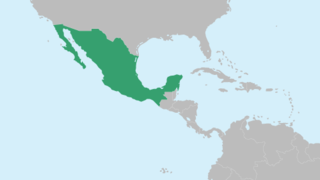Copyright: AdobeStock / jkraft5
Reducing marine litter: what are the specific challenges in Mexico?

Copyright: iStockPhoto / Fourleaflover
In Mexico 120.000 metric tons of household waste are generated every day, 13 percent of which are plastic products. 16 percent of 6 million metric tons plastic waste per year is not collected. Estimations say that more than 100.000 metric tons of plastic end up in the sea every year.
The Mexican state of Oaxaca, with its 600 kilometre long Pacific coast, is particularly affected by plastic pollution and marine litter. With more than 4 million inhabitants, Oaxaca generates 1.3 million metric tons of household waste per year, of which 44 percent is not collected and treated. The coastal region and land isthmus with more than 1 million inhabitants generate 30 percent of Oaxaca’s waste.
(Single-use) plastic products and packaging as well as micro plastics pollute beaches and the sea of the country with the highest rate of biodiversity in Mexico. Coastal lagoons, mangroves, salt marshes, beaches, including nesting areas for sea turtles in the adjacent national park, as well as the sea areas important for various whale species are affected. Population growth and, above all, tourism, fishing and landfill sites near rivers exacerbate the problem.
Different approaches are necessary in Oaxaca to tackle marine plastic pollution. An important overall goal is to reduce and prevent plastic waste generation in general. Hand in hand goes the expansion of plastic waste management systems, which requires strengthening municipal financial and knowledge capacities on waste management. Improving waste management coordination between the government, federal states and municipalities is also crucial, as is close cooperation with the private sector and civil society.
How is the project helping to reduce marine litter?
PROCEP determines the plastic input into the ocean at selected points on the coast of Oaxaca. In this way, PROCEP identifies hotspots for marine litter inputs as well as waste quantities, and can build and improve local environmental and waste management systems.
Plastic waste streams from tourism and fishing are recorded with a newly developed monitoring app. In cooperation with the local nature conservation authority, tourism and fisheries are involved in the management from the beginning and sensitised through campaigns and advice on substitute products and other measures. The consequences of plastic waste on ecosystems, biodiversity and human health are explained and behavioural changes are motivated.
Lessons learned in the pilot region on the reduction and recycling of unavoidable waste are proposed for relevant national environmental policy strategies and programmes. The aim is to reduce the amount of waste in the long term. Best practices are also disseminated via regional, digital platforms, which can inspire action among political and private sector stakeholders in Mexico to implement further plastic avoidance measures. To ensure outreach and impact of the project, PROCEP involves a wide range of stakeholders, including businesses, municipalities, civil society and universities. Focussing on sound municipal waste and resource management systems, the project aims to improve living conditions in coastal towns and indigenous communities.
